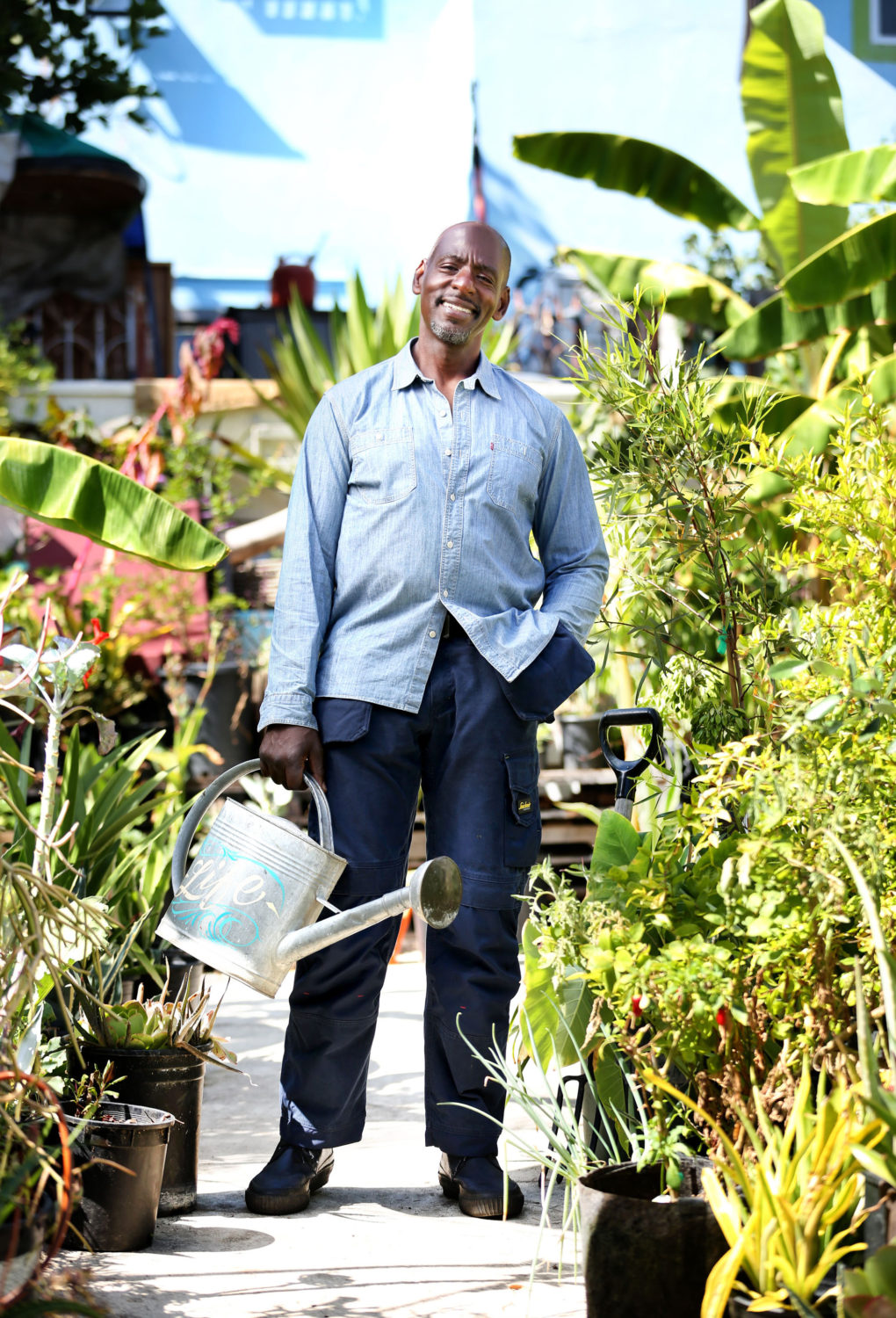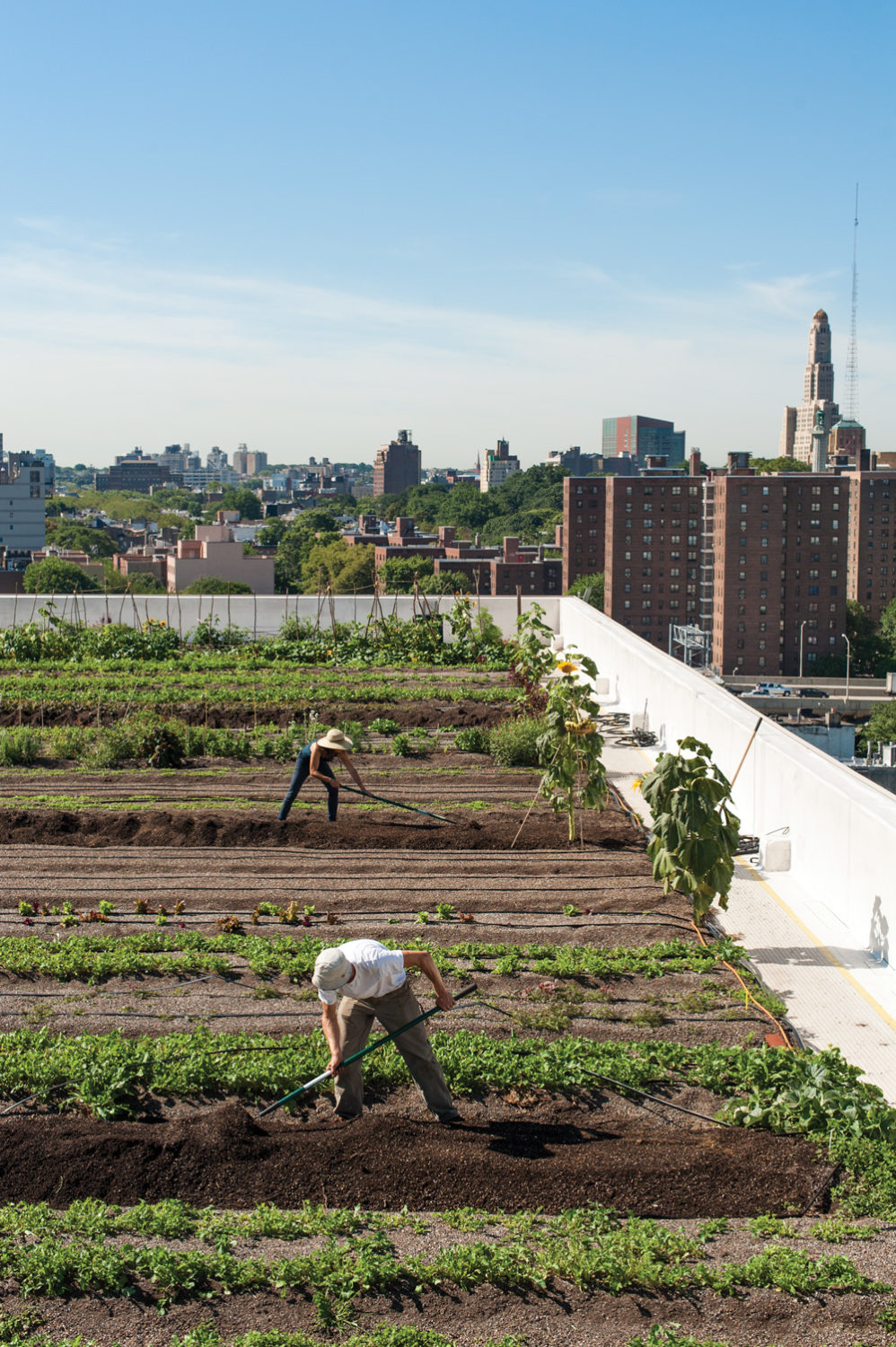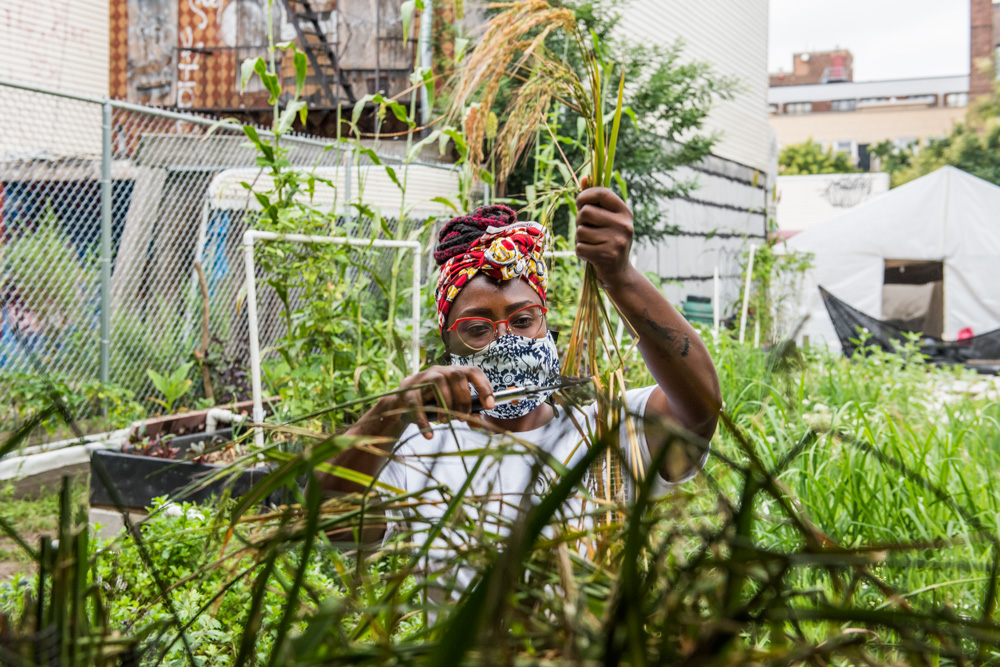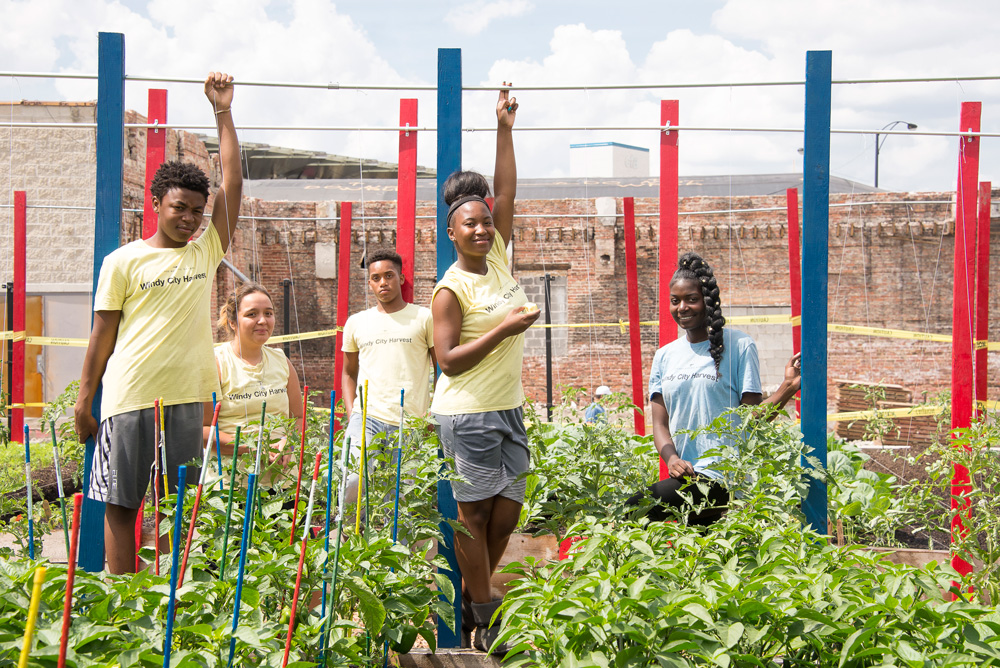How Urban Farming Is Bolstering Today’s Fragile Food Systems
By Something CuratedIn the early days of the pandemic, empty supermarket shelves revealed the fragility of current food systems. The disarray of the global food supply chain might have fuelled the revived push for locally produced foods with a considerable number of urban farms in the US, offering community supported agriculture programmes that provide households with locally grown fruit and vegetables, having reported increases in demand that tripled or quadrupled their pre-Covid-19 numbers. And while it’s true that urban development has wiped out most signs of agrarian legacy in cities across the world, today there are more options than ever before to grow food in urban settings. Urban farmers have a unique opportunity to touch on many disciplines at once and become dynamic forces of positive change in their communities.

From beekeeping on rooftops to underground mushroom farms, gestalten’s latest tome Urban Farmers explores the rich world of planting, growing, and harvesting in modern cities and shows that soil, seeds, and concrete can be the unexpected formula for a greener, healthier and more sustainable life in the city. The new book showcases the vast universe of urban agriculture in different parts of the world, revealing what makes each of the farms and projects featured unique. Some run their projects as innovative businesses, while others pursue a non-profit approach based on alleviating systemic structural issues affecting their communities. Presenting a mix of in-depth case studies, inspiring profiles of the movement’s pioneers and essays by experts in the field, Urban Farmers gives readers the opportunity to learn from the best and get their hands dirty.

Los Angeles-based guerilla gardener, urban anthropologist and activist Ron Finley explains, “We don’t think about how the food gets to the store, if the people who harvested it can afford it, or how many hours of backbreaking work in the field they go through to grow a beautiful lettuce. We don’t see the value in soil that we should see. That’s how we change that mindset – seeing the power in the freedom that is in soil. If you are growing your own food, you are free from an oppressive society, from an unjust food system.”
Over 23.5 million US citizens live in food deserts, defined as areas lacking access to good quality, healthy, fresh food, an echo of the systemic racism infused in the country’s food system. Leah Penniman, founding co-director of Soul Fire Farm in New York, considers the situation food apartheid, a term coined by activist Karen Washington. “It’s not a natural desert, it’s a human-created system of segregation,” she says. “Though urban farming has become a hip lifestyle choice for many young White professionals, it remains a matter of cultural, spiritual, and nutritional sovereignty for people of colour and immigrant city farmers,” Chris Bolden-Newsome, farm co-director and crop management teacher at Sankofa Community Farm in Philadelphia tells.

There are programmes addressing vital food sovereignty issues affecting underserved communities and providing families with the tools and guidance to grow their own produce, which has been especially meaningful during the pandemic. These social aspects of urban farming are of great importance, but promoting biodiversity by serving as habitats for plants and animals is also crucial. According to the Food and Agriculture Organization of the UN, vegetable crops worldwide lost 75 percent of their genetic diversity between 1900 and 2000. “We seem to be facing so many different types of emergency: climate, humanitarian, biodiversity, health,” Australian gardener Kat Lavers points out. “Cities are never going to be self-sufficient, but they can have more of a buffer. So, by growing food at home, we can contribute to the solution; we can make things a bit more resilient, more comfortable when we get challenged by these sorts of events.”

From a rooftop farm in the Indonesian island of Java that aims to sell produce at affordable prices and provide more opportunities for women without access to higher education to a passionate activist tackling food insecurity by teaching urban farming skills in Nairobi; from closing the circle between fertilisation and composting as well as cultivating culturally significant seeds that can help to bridge communities and cultures through food, Urban Farmers is an invitation to roll up the sleeves, start digging and ultimately grow not only vegetables but strong communities.
gestalten’s Urban Farmers is available from 29 April 2021.
Feature image: Valery Rizzo, Urban Farmers, gestalten, 2021